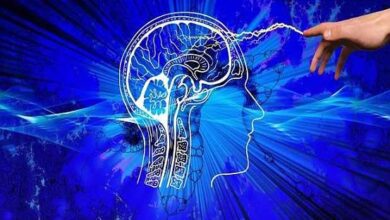Psycholinguistics
Psycholinguistics
Psycholinguistics is the study of the mental processes involved in the language, and the cognitive and neurological mechanisms underlying these processes. Psycholinguistics examines the relationship between language and the mind, including language processing, language acquisition, and language disorders. In Eglopedia.com, the readers can easily find the articles of Psycholinguistics and Neurolinguistics.
Through Englopedia.com, you can answer every question arise in the field of Psycholinguistics and Neurolinguistics. It will updated you that Neurolinguistics is the study of the neurological basis of language processing and production. It examines the neural mechanisms involved in language comprehension, production, and acquisition, as well as the neural basis of language disorders. Neurolinguistics combines methods and principles from linguistics, psychology, neuroscience, and other fields to investigate the brain basis of language and how it is organized and processed.
Both psycholinguistics and neurolinguistics are interdisciplinary fields that draw on a range of research methods and techniques, including behavioral experiments, brain imaging (such as fMRI and EEG), and computational modeling. Together, these fields help us to understand the complex cognitive and neural processes involved in language use, acquisition, and processing. They also have important applications in areas such as language teaching, language therapy, and the development of artificial intelligence systems that can process and understand human language.
If both Psycholinguistics and Neurolinguistics confuse you a lot then no need to worry and just type Englopedia.com and eliminate your tension. We are always be there for your service of knowledge.
-
Acoustic dysgraphia reasons classification Diagnostics correction
Acoustic dysgraphia Acoustic dysgraphia is a partial disorder of the writing function due to a lack of auditory perception. It…
Read More » -
Acoustic-mnestic aphasia with reasons and symptoms
Acoustic-mnestic aphasia Acoustic-mnestic aphasia is a speech disorder caused by an impairment of auditory-verbal memory. It is characterized by difficult repetition of…
Read More » -
Wernicke’s aphasia causes symptom treatment and diagnostic
Wernicke’s aphasia Aphasias are conditions of the brain that impact a person’s communication abilities, particularly speech. Wernicke’s aphasia causes difficulty…
Read More » -
What is Agraphia Classification reasons Diagnostics and correction
Agraphia Agraphia is the gross disorganization of written speech, leading to the impossibility of implementing the act of writing. It…
Read More » -
Agrammatic dysgraphia classification Diagnostics and Complication
Agrammatic dysgraphia Agrammatic dysgraphia is a repetitive writing error caused by the underdevelopment of the grammatical structure of the language. It…
Read More » -
Agrammatism definition causes and classification with examples
Agrammatism Agrammatism is the inability to build or perceive grammatical structures. Agrammatisms are found in speech and writing. They are characteristic of the…
Read More » -

Types of memory in psychology types according to different aspects
Memory Each type of memory has its own operation, although all of them cooperate to carry out a complete memorization process. This is complex…
Read More » -
8 types of intelligence Howard Gardner’s Types of Intelligence
Intelligence Intelligence is the ability of the human being (and to a lesser extent of some higher animals) to construct useful information to…
Read More » -
What is artificial intelligence with examples types
Artificial intelligence Artificial intelligence or computational intelligence is understood to be what machines or computers can display. This is a controversial…
Read More » -
Emotional intelligence characteristics concept importance
Emotional intelligence Emotional intelligence is the ability of people to understand their own and others’ emotions. It is a term that began…
Read More »